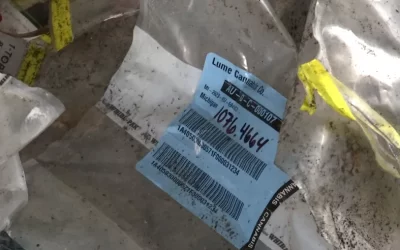Squatters and You
Squatting, in one definition is the act of occupying a property without legal permission, can be a headache for both property owners and squatters themselves. Sorry to cause you a such a headache squatter.
Michigan has specific laws addressing squatting, offering some protection to owners while outlining potential consequences for squatters.
Here’s One…
MCL 750.553: Criminal Trespass
Michigan criminalizes squatting in single-family dwellings and one or both units in a two-family dwelling through MCL 750.553. This law defines “occupies” as physically living within the structure.
Here’s a breakdown of the key points:
- No Consent: The squatter must have never had the owner’s consent to occupy the property.
- Penalty: A first offense is considered a misdemeanor punishable by a fine of up to $5,000 per dwelling unit occupied, imprisonment for not more than 180 days, or both. Subsequent offenses are felonies with steeper penalties.
- Exceptions: The law doesn’t apply to guests or family members of the owner or a tenant.
This statute empowers property owners to pursue legal action against squatters, potentially leading to their removal and facing criminal charges. While they destroy your property and cost you legal fees, house and utility payments.
Self-Help Eviction
Michigan offers a unique remedy for property owners: self-help eviction.
Unlike most states, Michigan allows owners to take specific actions to encourage squatters to leave without involving law enforcement.
However, crucial limitations exist:
- Limited Scope: Self-help measures are only applicable to situations covered by MCL 750.553 (single-family and two-family dwellings).
- Actions: These measures can involve changing locks, shutting off utilities deemed non-essential for safety and health (like electricity or heat), or removing the squatter’s belongings after they’ve been properly evicted (typically through a legal notice).
Important Cautions:
- Legality: Any self-help actions must strictly adhere to legal boundaries. Improper actions can lead to lawsuits from the squatter. Consulting a lawyer before taking any steps is highly recommended.
- Tenant vs. Squatter: These measures cannot be used against tenants with a valid lease agreement. Evicting tenants requires following formal eviction procedures.
MCL Adverse Possession vs. Squatting
It’s important to distinguish squatting from adverse possession, another legal concept related to occupying land. MCL 600.5801 [MCL 600.5801] outlines adverse possession, where someone can potentially gain ownership of a property through extended, uninterrupted, and hostile possession that meets specific criteria. Squatting, however, is generally temporary and lacks the “hostile” element required for adverse possession.
Adverse Possession in Michigan – Can Someone Claim Your Property?
Taking Action – Since You Can’t Call in the A Team
If you suspect someone is squatting in your property, here are some steps to consider:
- Contact Law Enforcement: For situations covered by MCL 750.553, involving the police can initiate the process of removing the squatter and potentially pressing charges.
- Seek Legal Counsel: An attorney can guide you through the legal options available, including navigating self-help measures or pursuing formal eviction procedures.
Michigan Court Rules
MICHIGAN COURT RULES OF 1985Updated February 13, 2024 The Michigan Court Rules The Michigan Rules of Court are the rules adopted by the Michigan Supreme Court to govern Michigan’s legal system and the judges, lawyers, and other professionals who are charged with...
Understanding Michigan’s Cyberbullying Law (MCL 750.411x)
Understanding Michigan's Cyberbullying Law With the ever-expanding digital landscape, cyberbullying has become a harsh reality for many. Michigan, recognizing its seriousness, has established specific laws to address this issue. Here's some things you need to knowWhat...
The Law
750.553 Occupancy of building without consent; violation; penalty; exception.
Sec. 553.
Real Questions from Real Calls
Question: I am squatting in a house in Michigan and was threatened by the owner. What can I do?
In Michigan, squatting is illegal and the owner has the right to take action to get you out. Here’s what you should know:
Your Legal Situation:
- Squatting is a Crime: Michigan’s MCL 750.553 criminalizes squatting in single-family homes and one or both units in a two-family dwelling [MCL 750.553]. Since you’re squatting, the owner has legal grounds to pursue your removal.
- Threats vs. Legal Action: While the owner may have threatened you, they can’t physically remove you themselves. However, they can involve the police or initiate legal eviction proceedings.
What You Can Do:
- Leave Immediately: This is the safest and most advisable option. There’s a high chance you’ll be evicted if the owner pursues legal channels, and you could face criminal charges.
- Seek Shelter Assistance: Contact local homeless shelters or social service agencies for temporary housing or resources to help you find permanent housing.
- Legal Aid: Consider seeking legal aid from organizations specializing in tenant rights. They can offer advice on your options and potential defenses (if any) based on the specifics of your situation.
Important Notes:
- Self-Help Eviction: Michigan allows self-help eviction for some situations, but it’s a complex process with legal risks. It’s best to avoid this and let the legal system handle the eviction.
- False Claims of Tenancy: Don’t attempt to falsely claim you have a lease agreement. This is a crime and could worsen your situation.
Here are some resources that can help:
- Michigan Legal Services Helpline: 1-888-773-8255
Related Articles
No Results Found
The page you requested could not be found. Try refining your search, or use the navigation above to locate the post.
More Posts
Your Tax Dollars at Work: State pays $13M settlement for active shooter drill
Your Tax Dollars at WorkState pays $13M settlement for unannounced active shooter drill at Northville Township psychiatric children’s hospitalSomeone Missed the Memo...
Laws passed by Michigan lawmakers in 2023 will take effect
Several new laws passed by Michigan lawmakers in 2023 will take effect on Tuesday, Feb 13, 2023Making use of the first combined Democratic majority in the state House,...
Understanding Michigan’s Cyberbullying Law (MCL 750.411x)
Understanding Michigan's Cyberbullying Law With the ever-expanding digital landscape, cyberbullying has become a harsh reality for many. Michigan, recognizing its...
FAQs About Restoring Your Drivers License in Michigan
Frequently Asked Questions about Restoring Your Driver's License in MichiganHere's what you need to knowWhat are the steps to restore my driver's license in Michigan?...
Involuntary Manslaughter Charges and Penalties in Michigan
Involuntary Manslaughter Charges and Penalties in MichiganHere's things you should to knowWhat is Involuntary Manslaughter in Michigan? Involuntary manslaughter differs...
Cannabis Tax Payments Being Distributed in Michigan
Adult-Use Marijuana Tax Payments Being Distributed In MichiganHere's what they say...Treasury: Adult-Use Marijuana Payments Being Distributed to Michigan Municipalities...
The Expanding List of Crimes that Restrict Gun Ownership
The Expanding List of Crimes that Restrict Gun Ownership in MichiganHere are the LawsDomestic Violence The legislature passed a package of bills that add subsets to...
Forensic Science Division – DNA Profiling System
The Michigan State Police Forensic Science Division (FSD) DNA Profiling System is a comprehensive program that uses DNA analysis to support criminal investigations...
Apparent cannabis testing bags in trash pile in Lansing
Michigan's marijuana laws mandate that both retail recreational and medical marijuana undergo comprehensive testing conducted by independent laboratories. The purpose...
Evidence in Michigan Courts: Proposed Amendments of MRE
The Michigan Rules of Evidence are the rules adopted by the Michigan Supreme Court to govern evidentiary processes throughout Michigan's judicial system. Occasionally,...













